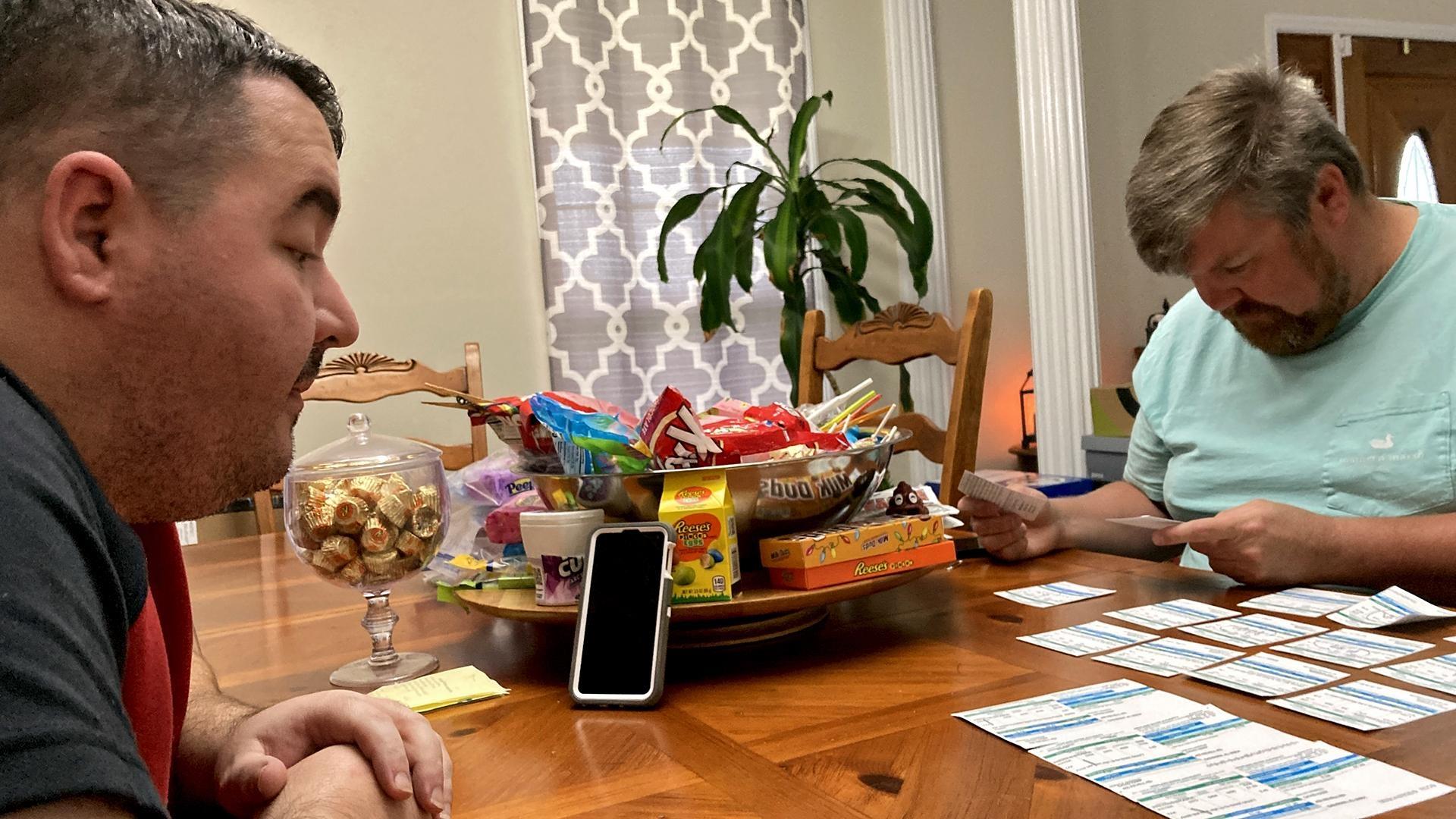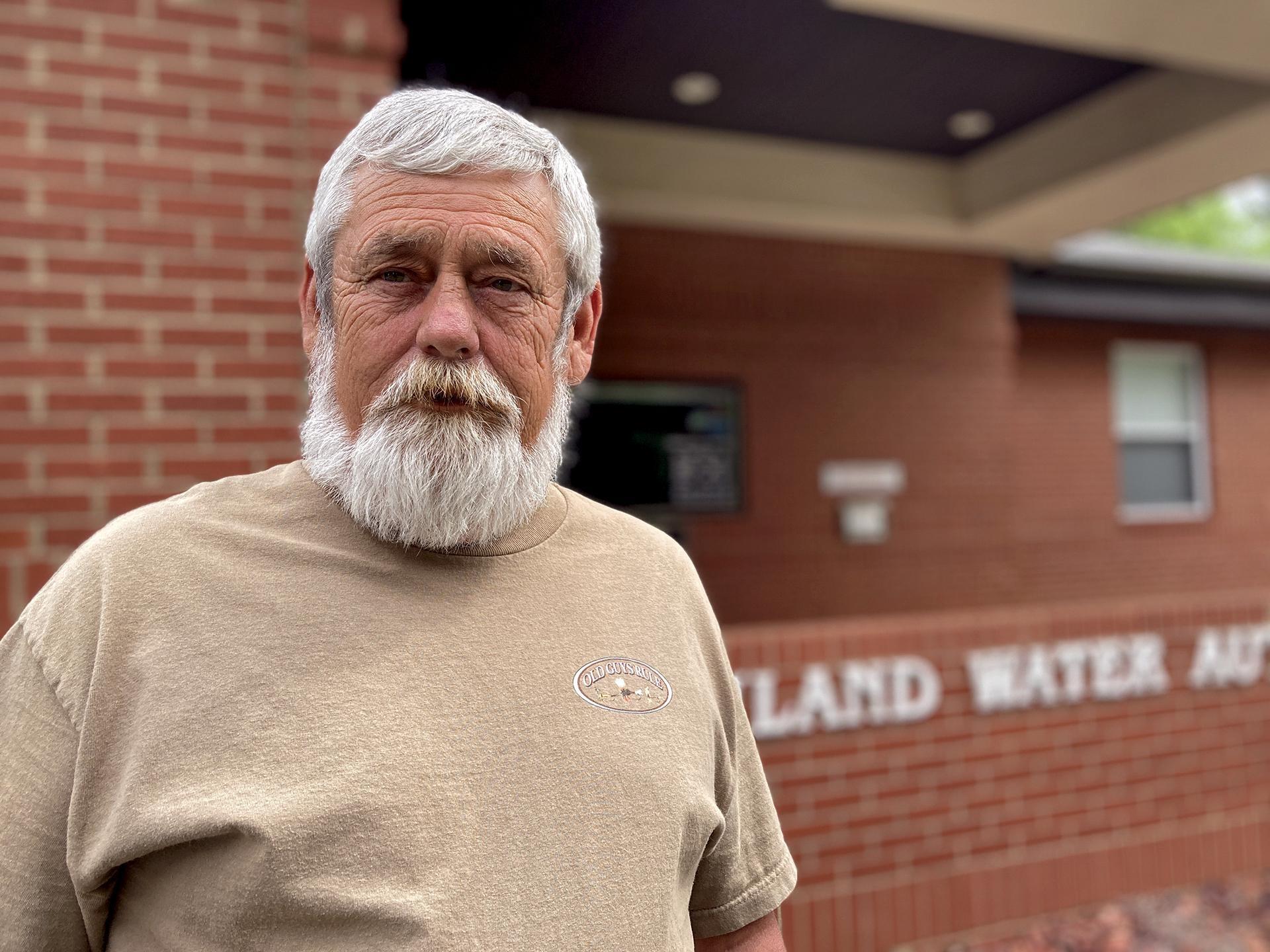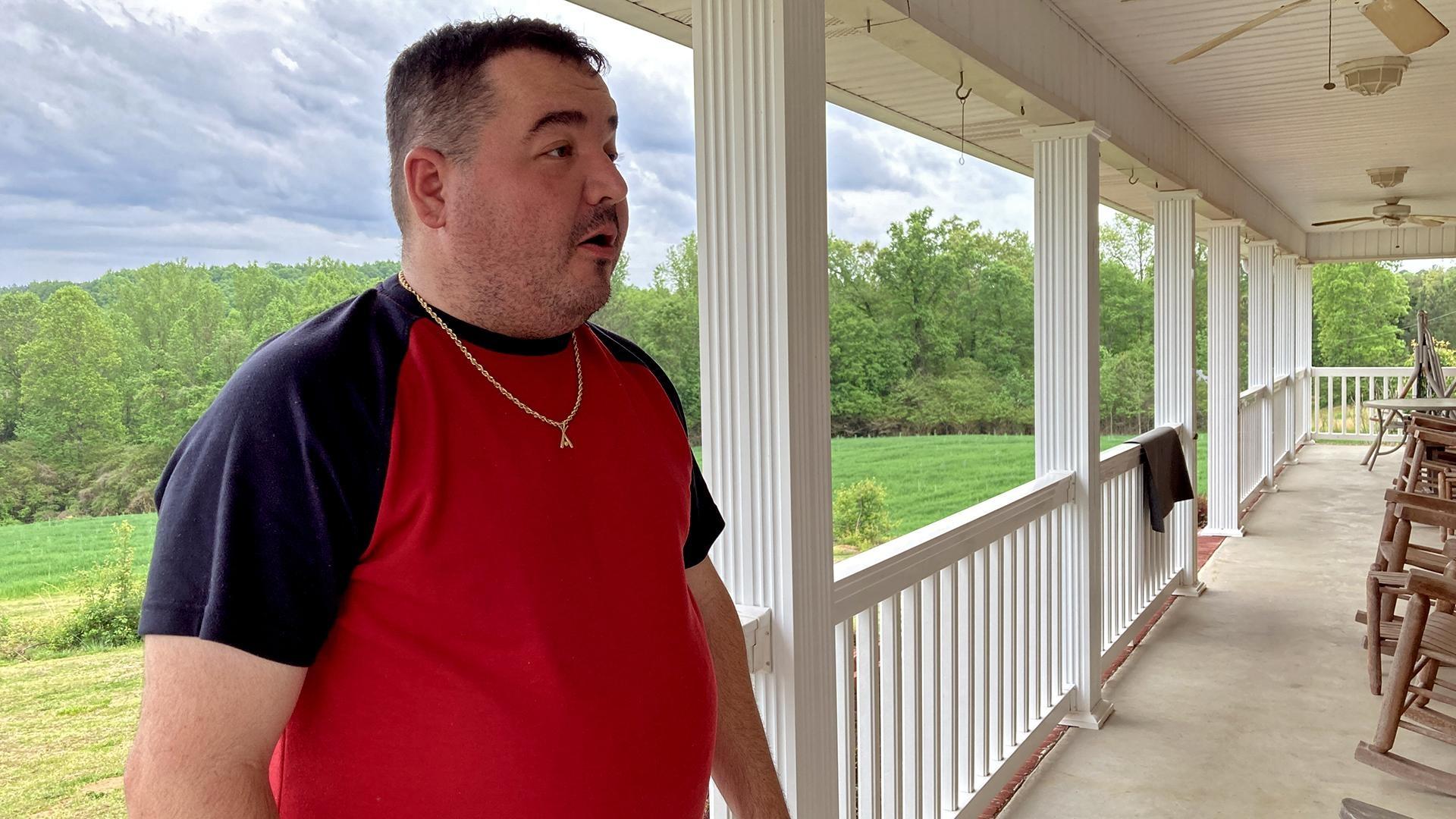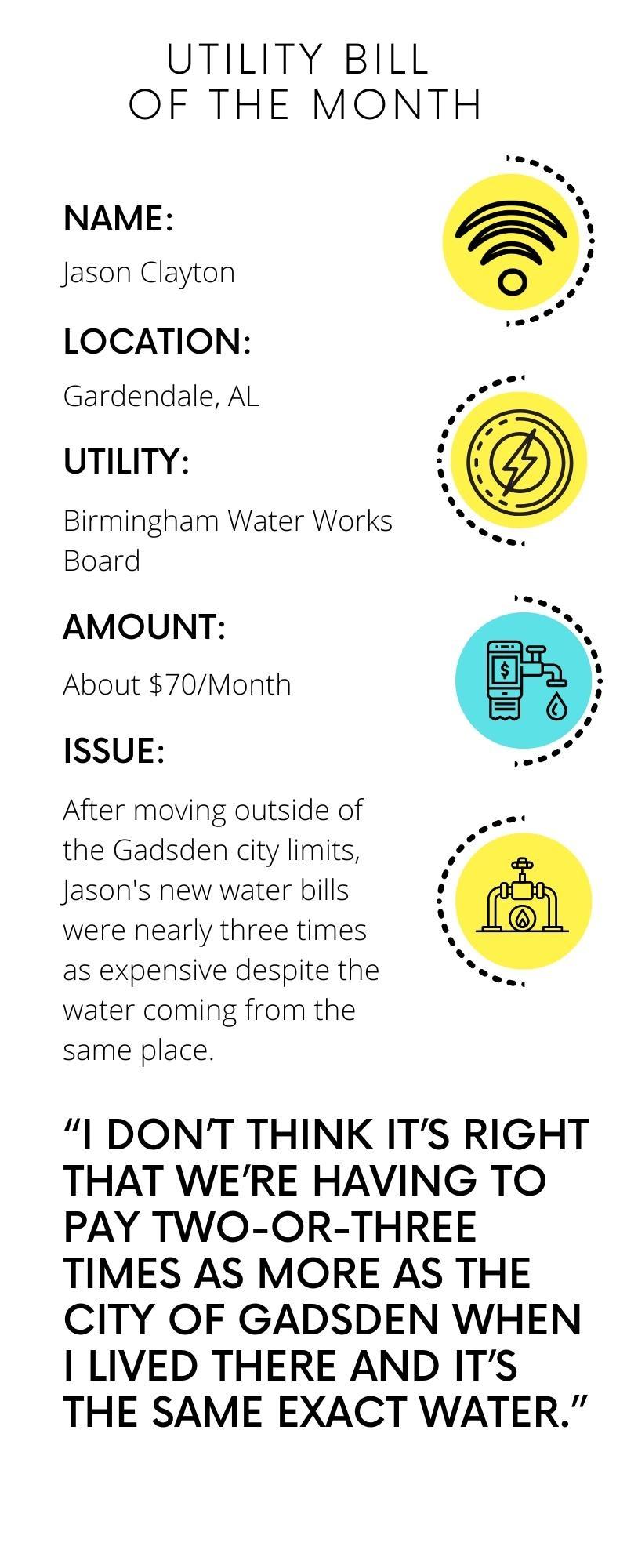So, what’s behind the markup?
Part of the explanation is that delivery isn’t so easy. The biggest challenge for rural water providers, like Highland Water, is servicing fewer customers spread farther out — which often equals everyone paying more. While Clayton’s home is just a few minutes’ drive from Highland Water’s main office, the utility maintains about 140 miles of pipes across rocky terrain with only about 1,300 customers footing the bill.
Situations like this are why many rural homeowners rely on private wells, but that’s not an option in Lookout Mountain. Too much iron in the groundwater makes it undrinkable. While that’s usually not a health risk, it’s enough to ruin its taste and stain laundry.
One customer, who was fed up with the prices, decided to dig his own well before learning that lesson the hard way, according to Richard Farley, the general manager for Highland Water.
“He’s got a $4,000 hole in the ground that he can’t even drink the water,” Farley said. “He’s back on us.”
Since the groundwater here’s best left below, that leaves buying drinking water from Gadsden as the only option. Highland Water pays Gadsden the same rate as any other consumer before passing the bill to its customers — along with the added cost of maintaining pipes and other infrastructure.
The deal’s not so unusual, however. Mississippi has dozens of these middle-men utilities buying water from somewhere else and delivering it through rural communities.
“That water bill is a privilege to get to live in this community,” Farley said. “They don’t understand out here just how much we put into it just to keep the price down, and probably never will.”
.png)







